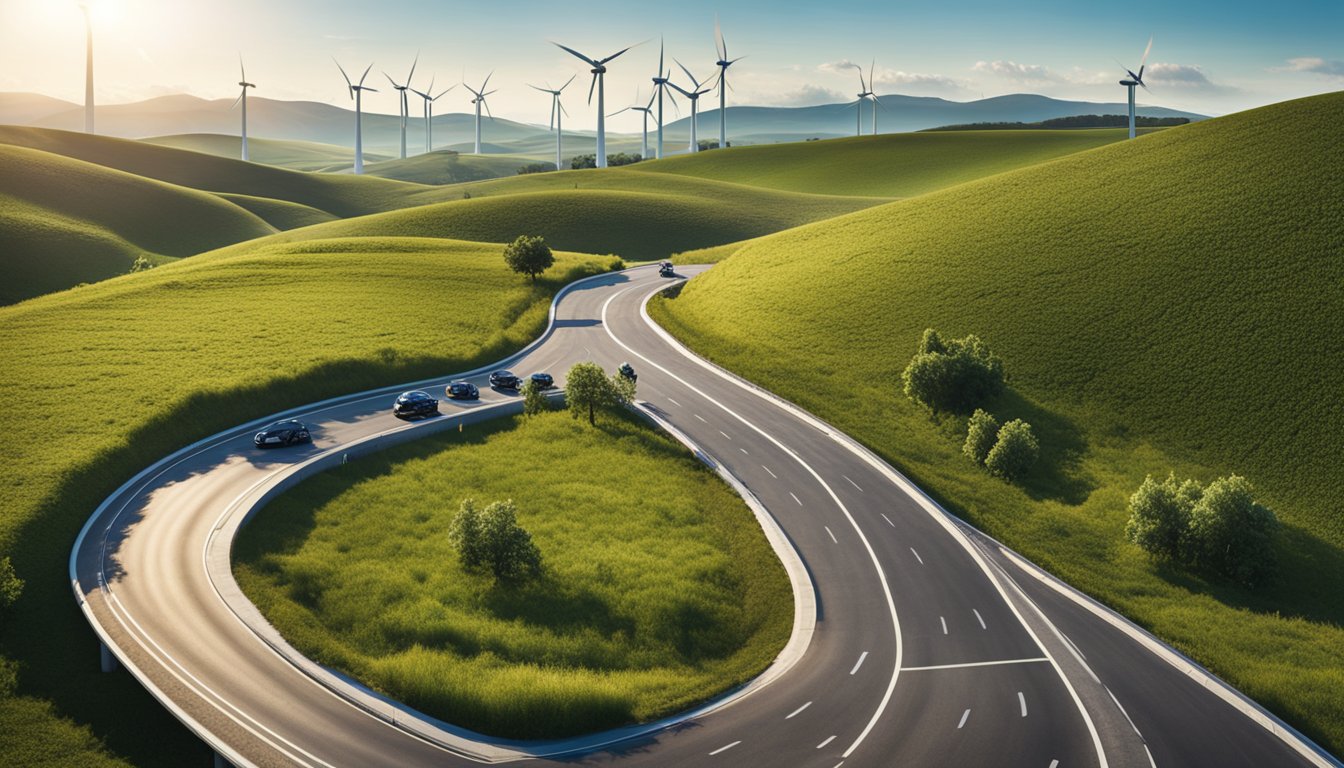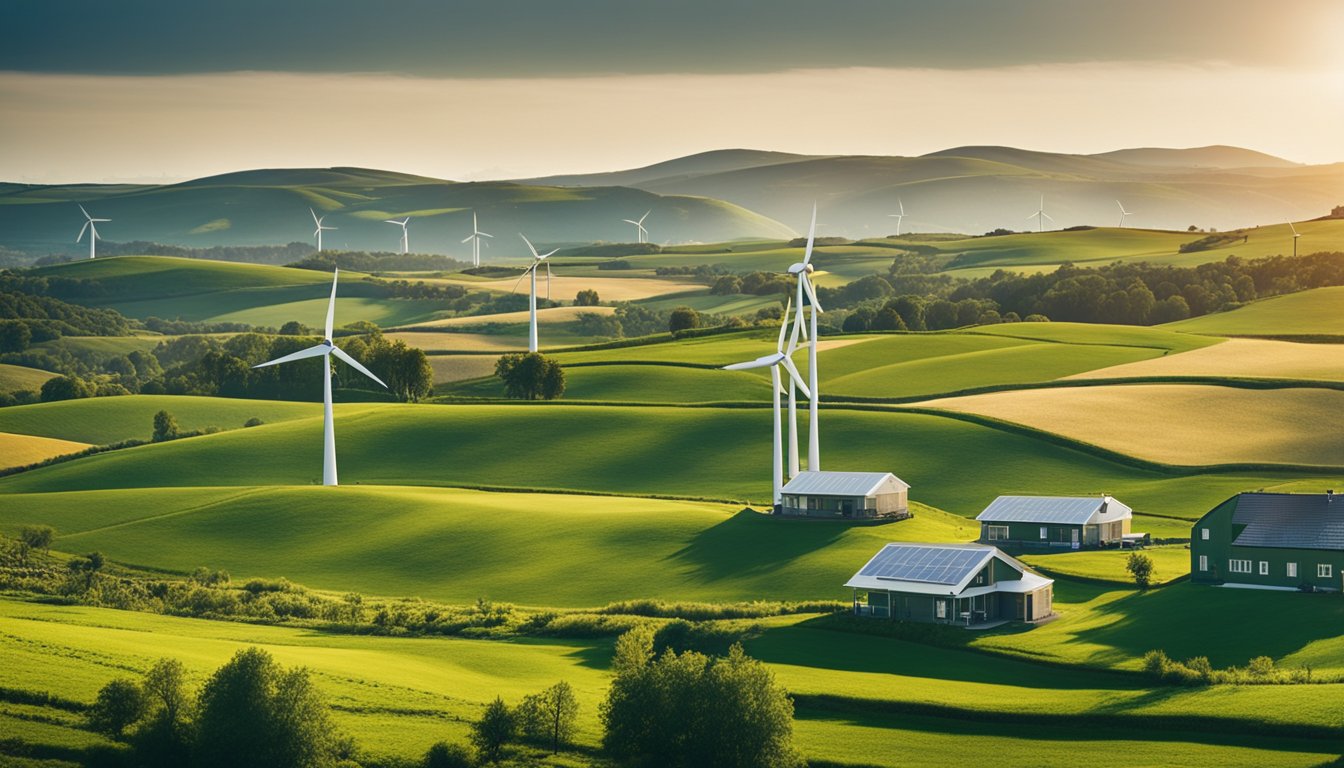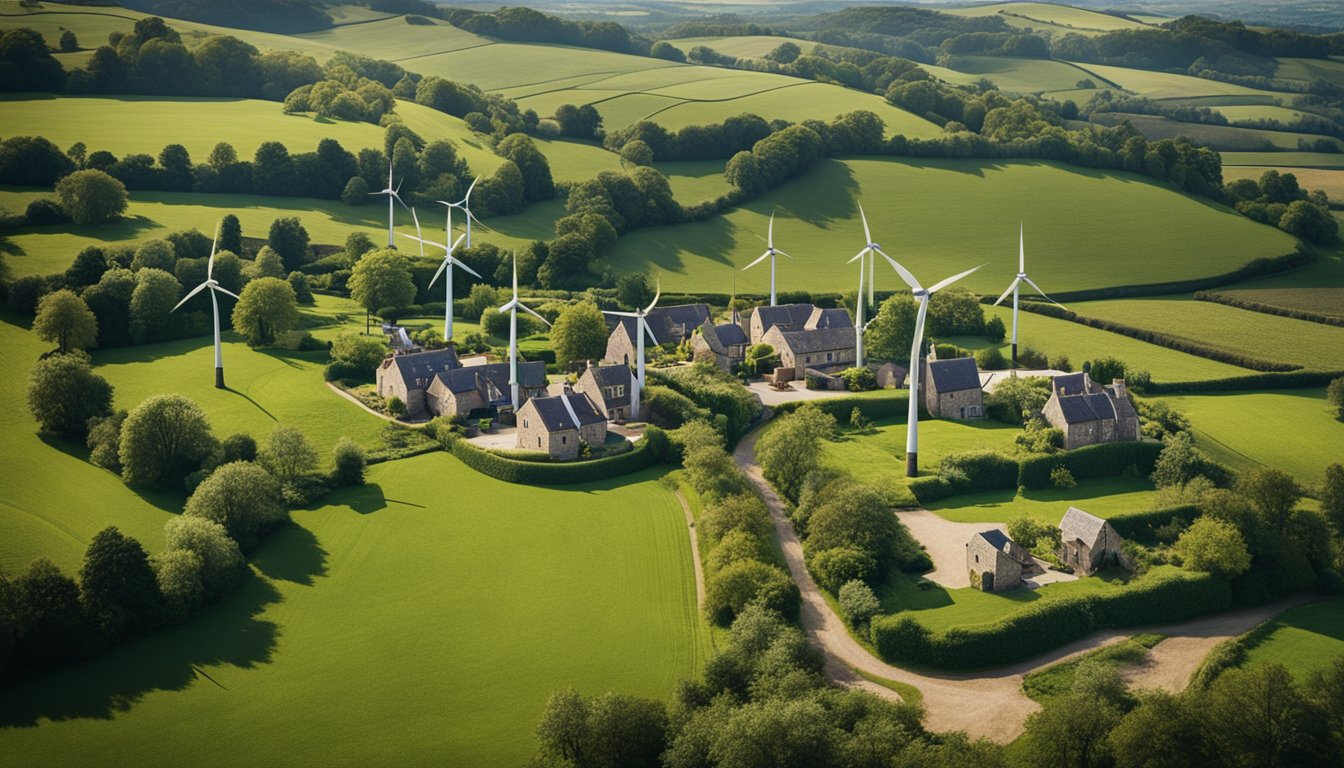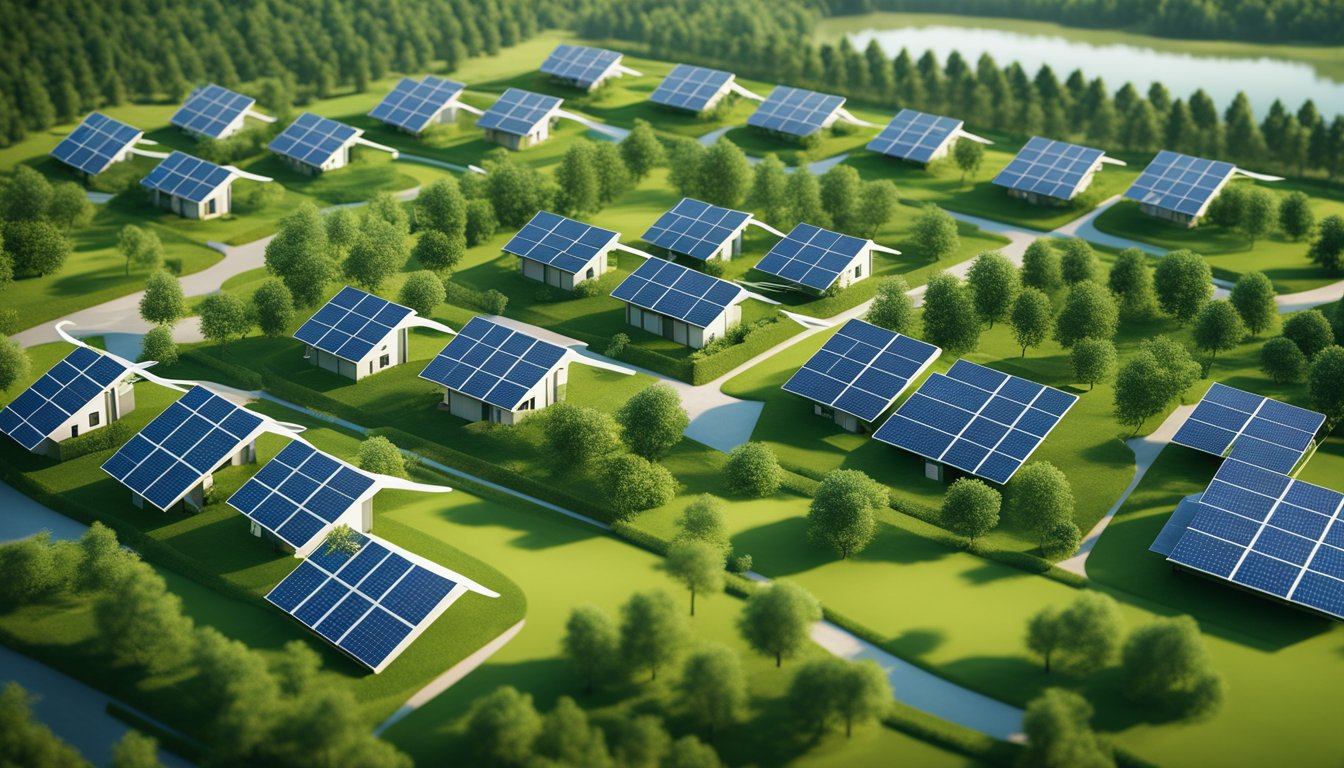Late updated: 21 Feb 2025 12:02
Written by: Oliver Bennett
Green Technologies Transforming UK Countryside Living: A Sustainable Future
The UK countryside is experiencing a remarkable transformation driven by the integration of green technologies. These advancements are not only enhancing rural living standards but also paving the way for a sustainable future. From renewable energy solutions to eco-friendly innovations in housing, the countryside is rapidly evolving into an eco-conscious haven.

We find ourselves amid a landscape where green practices are becoming the norm. Access to renewable energy sources, such as wind and solar power, has dramatically increased, providing cleaner energy options for rural homes. This shift is a crucial part of the UK's commitment to achieving net zero greenhouse gas emissions by 2050.
Advancements in connectivity are also reshaping rural communities, allowing residents to enjoy improved broadband and mobile network infrastructure. This technological progress supports the development of smarter, energy-efficient homes, which are at the heart of sustainable living. Join us as we explore these exciting changes and their impact on countryside life.
Key Takeaways
- Green technologies enhance sustainability in UK rural living.
- Renewable energy is vital for achieving net zero emissions.
- Improved connectivity supports smarter countryside homes.
Sustainability and Energy Solutions in the Countryside

In the UK countryside, renewable energy and sustainable practices are reshaping traditional rural living. By integrating solar panels, wind turbines, and biomass energy, these areas are reducing their carbon footprint significantly. Such transformations support the goal of net-zero emissions and contribute towards a sustainable future.
Harnessing Renewable Resources
One of the most effective ways we can achieve sustainability in the countryside is through the use of renewable energy sources. Solar panels are becoming more common, utilising the sun's power to provide clean energy. Wind turbines also play a crucial role as they convert wind into electricity, especially in windy rural locations. Biomass energy, derived from organic materials, offers another viable solution, providing an alternative to fossil fuels. These green technologies not only decrease carbon emissions but also foster energy independence within rural communities.
Net Zero Objectives and Rural Contributions
Achieving net zero emissions by 2050 is a key target for the UK, and the countryside plays an essential role in this effort. The vast open spaces available in rural areas are ideal for setting up renewable energy installations, contributing significantly to national energy efficiency goals. By tapping into solar and wind power, the countryside can generate substantial amounts of clean energy. This alignment with the net-zero objective not only benefits the environment but also brings economic opportunities to local communities through job creation in the green sector.
Eco-Friendly Rural Housing Initiatives
Green homes grants and other incentives are encouraging the development of eco-friendly housing in rural areas. These initiatives support the installation of energy-efficient systems like advanced insulation, heat pumps, and solar panels in countryside homes. Such measures reduce the energy required for heating and cooling, leading to lowered carbon emissions and energy costs. By investing in these sustainable practices, we not only enhance the environmental footprint of rural housing but also improve the quality of life for residents. Through these initiatives, the countryside is becoming a model for sustainable living, demonstrating the importance of integrating modern green technologies into traditional settings.
Advancements in Countryside Living

Our rural landscapes are experiencing a transformation with modern connectivity tools, sustainable agricultural practices, and efforts to enhance biodiversity. These advancements are crucial as we move towards more eco-friendly countryside living.
Modernising Countryside Connectivity
As technology advances, access to reliable internet and cellular networks has become critical for countryside communities. While many face challenges due to underdeveloped infrastructure, recent developments show promise. High-speed broadband initiatives and 5G installations are bridging the gap, enabling residents to access online services and remote work opportunities.
Smart homes in the countryside can now utilise smart thermostats and energy-efficient devices, allowing for improved energy savings and eco-friendly living. With enhanced connectivity, rural communities can participate more fully in the digital economy, fostering both growth and convenience.
Sustainable Agricultural and Landscaping Practices
Sustainable practices are essential in reducing carbon emissions and promoting ecological balance in rural areas. Farmers are increasingly adopting smart irrigation systems to conserve water and enhance crop yield efficiency. Technologies such as drones and precision farming tools help monitor soil health and optimise resource usage.
In terms of landscaping, recycling of organic waste into compost and the use of renewable energy sources, like solar panels, contribute to an eco-friendly rural environment. By integrating these practices, countryside living becomes more sustainable, benefiting both residents and the broader ecosystem.
Conservation and Biodiversity
Conservation efforts are vital in maintaining the biodiversity that characterises the UK countryside. Protecting habitats and implementing sustainable practices help curb greenhouse gas emissions. Organisations and communities are working together to restore natural habitats and encourage the presence of native species.
Biodiversity corridors, which connect fragmented habitats, allow wildlife to thrive even in developed areas. By promoting eco-friendly initiatives and careful land management, we ensure that our rural landscapes remain vibrant and supportive of diverse life forms, maintaining the balance between human activities and nature.
Frequently Asked Questions

In the UK countryside, green technologies are reshaping residential living by incorporating sustainable materials and practices. Key projects like BedZED and emerging employment opportunities play a significant role in this transformation.
What are the key green technologies currently utilised in UK countryside residences?
In rural UK areas, solar panels, smart grids, and advanced heat pumps are prominently used. These technologies help reduce reliance on traditional energy sources. Eco-friendly building materials such as reclaimed wood and sheep wool insulation also contribute to greener homes.
How do sustainable housing developments in the UK contribute to the green economy transition?
Sustainable housing projects support the green economy by creating demand for eco-friendly products and services. They help reduce carbon footprints, promoting local biodiversity and resource conservation. Additionally, these developments often lead to increased investment in renewable energy infrastructure.
What is BedZED, and how has it influenced eco-friendly construction practices?
BedZED is the UK's first large-scale, mixed-use sustainable community. Located in south London, it pioneers eco-friendly construction with features like solar panels, energy-efficient homes, and rainwater recycling. The initiative has inspired many architects and developers to adopt similar practices nationwide.
In what ways has the BedZED project impacted transportation within its local area?
The BedZED project emphasises reducing car dependency through shared transport schemes and electric vehicle charging points. Its design encourages walking and cycling by providing convenient pathways. These efforts have significantly lowered transportation-related emissions in the area.
Are there employment opportunities emerging from the green technology sector in rural UK?
Yes, the green technology sector offers a growing number of jobs in rural areas. Opportunities exist in renewable energy installations, eco-friendly construction, and green consultancy services. This shift brings economic benefits and enhances local skills.
How successful has the BedZED initiative been in achieving its sustainability goals?
BedZED has successfully met many of its sustainability targets. It has reduced fossil fuel use and water consumption while increasing energy efficiency. The project serves as a model for achieving sustainable community living, influencing future developments.
